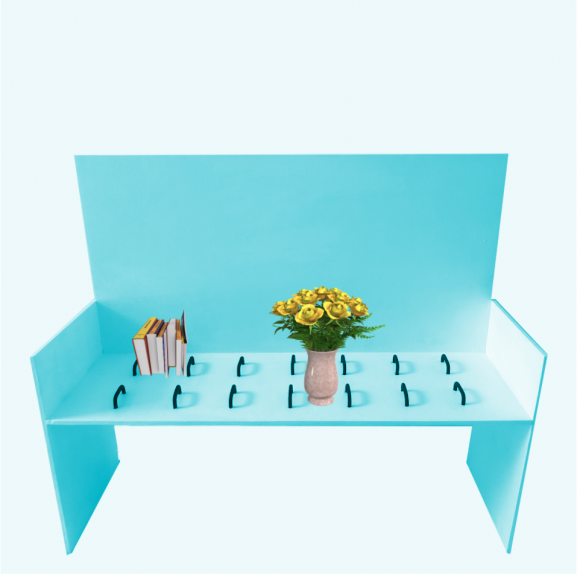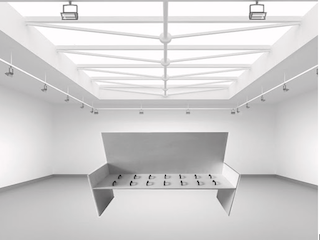The Public Chair is a social critique on classist urban design towards the homeless population in public spaces through the implementation of hostile architecture.
Sofia Shockman
Description
Used for seating and lounging, a park bench holds the purpose of recreation such as people watching, taking the dogs to the dog park and waiting, or to have a moment of rest. The Public Chair critiques how park benches in many metropolis cities have systematically suppressed homeless individuals through uninhibiting design. The Public Chair is a bench displaying hostile architecture as a critique of contemporary urban design by removing all practicalities from a typical bench.This abstract installation represents the convergence of similar yet fairly distinct class struggles, specifically for the homeless. I researched the design techniques that alleviate homelessness in Houston, Texas and have conducted interviews in New York City with several who identify as homeless on 7th and 9th street. They shared deeply moving yet traumatizing stories of their lives from the past, present, and the uncertainty of their futures. I asked them how they felt about public spaces and what they wanted to see out of them, but what struck me about their response is that they didn’t care what improvements could be done. What I discovered is that the issue isn’t a design solution, but a question of public policy and proper policing. They said that police are vigilant of their actions, thus a majority of the time they are asked to leave public property. I witnessed the policing firsthand as I was conducting my interview, the same officer circled us multiple times even though we were just chatting outside of CVS. The piece symbolizes the perpetual loop of political design and the implications of designing with inhibiting factors that hinder the use of the public sphere.


